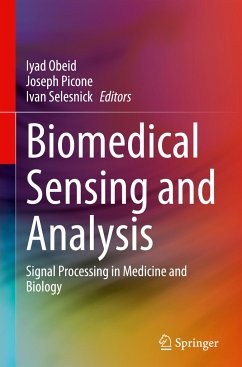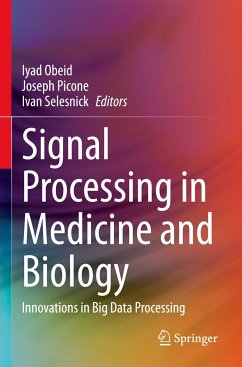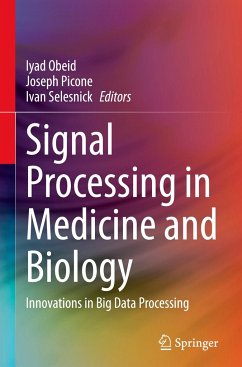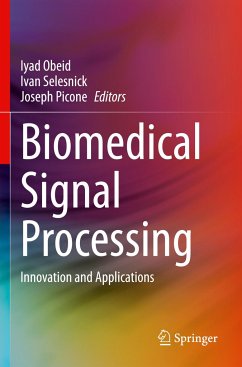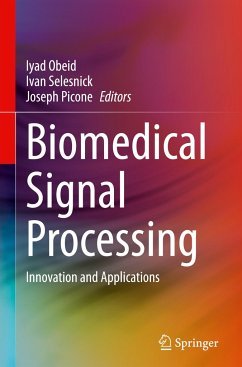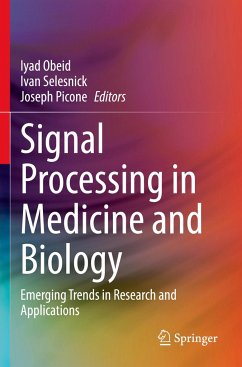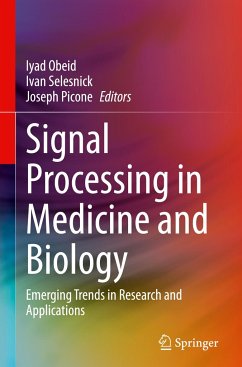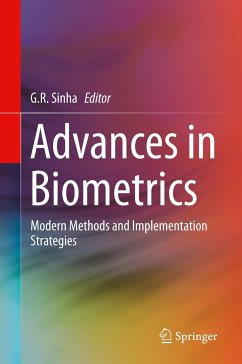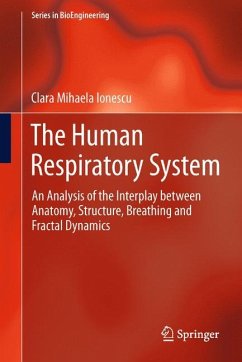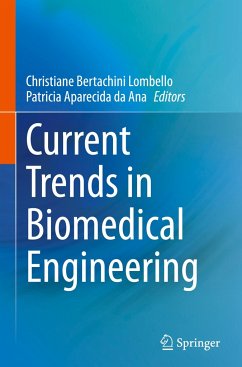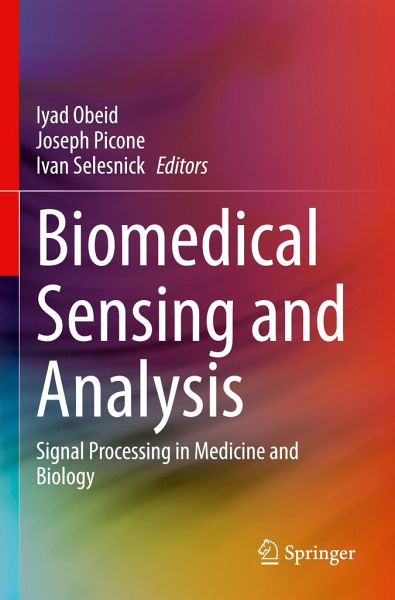
Biomedical Sensing and Analysis
Signal Processing in Medicine and Biology
Herausgegeben: Obeid, Iyad; Picone, Joseph; Selesnick, Ivan
Versandkostenfrei!
Versandfertig in 6-10 Tagen
91,99 €
inkl. MwSt.

PAYBACK Punkte
46 °P sammeln!
This book provides an interdisciplinary look at emerging trends in signal processing and biomedicine found at the intersection of healthcare, engineering, and computer science. Bringing together expanded versions of selected papers presented at the 2020 IEEE Signal Processing in Medicine and Biology Symposium (IEEE SPMB), it examines the vital role signal processing plays in enabling a new generation of technology based on big data and looks at applications ranging from medical electronics to data mining of electronic medical records. Topics covered include analysis of medical images, machine ...
This book provides an interdisciplinary look at emerging trends in signal processing and biomedicine found at the intersection of healthcare, engineering, and computer science. Bringing together expanded versions of selected papers presented at the 2020 IEEE Signal Processing in Medicine and Biology Symposium (IEEE SPMB), it examines the vital role signal processing plays in enabling a new generation of technology based on big data and looks at applications ranging from medical electronics to data mining of electronic medical records. Topics covered include analysis of medical images, machine learning, biomedical nanosensors, wireless technologies, and instrumentation and electrical stimulation. Biomedical Sensing and Analysis: Signal Processing in Medicine and Biology presents tutorials and examples of successful applications, and will appeal to a wide range of professionals, researchers, and students interestedin applications of signal processing, medicine, and biology.
Presents an interdisciplinary look at research trends in signal processing and biomedicine;Promotes collaboration between healthcare practitioners and signal processing researchers;Includes tutorials and examples of successful applications.
Presents an interdisciplinary look at research trends in signal processing and biomedicine;Promotes collaboration between healthcare practitioners and signal processing researchers;Includes tutorials and examples of successful applications.





